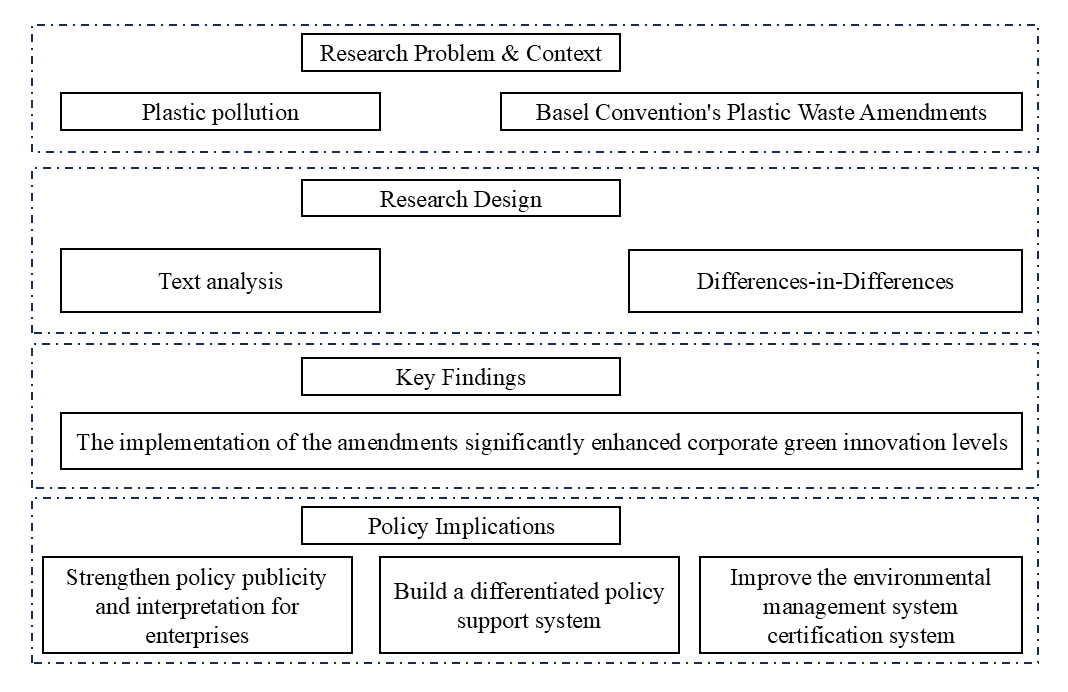
Environmental regulations aim to stimulate green innovation, yet the cognitive mechanisms through which policies influence corporate decisions remain poorly understood. This study investigates how environmental regulations transform corporate behavior through management cognition pathways using China's plastic industry as a case study. Analyzing panel data from Chinese plastic-related listed companies (2014-2024), we find that new regulatory frameworks enhanced corporate green innovation by 12.8%. This effect operates through dual cognitive channels: reshaping executives' perception of regulatory pressure while heightening awareness of technological change imperatives. Larger enterprises and those with mature environmental management systems demonstrated significantly stronger innovative responses. Our findings advance environmental planning literature by revealing the psychological dimensions through which regulations catalyze innovation and offer practical insights for policy design that accounts for enterprise heterogeneity. This research provides empirical evidence for understanding how sustainability regulations drive industry transformation through cognitive pathways.
Total file downloads: 31